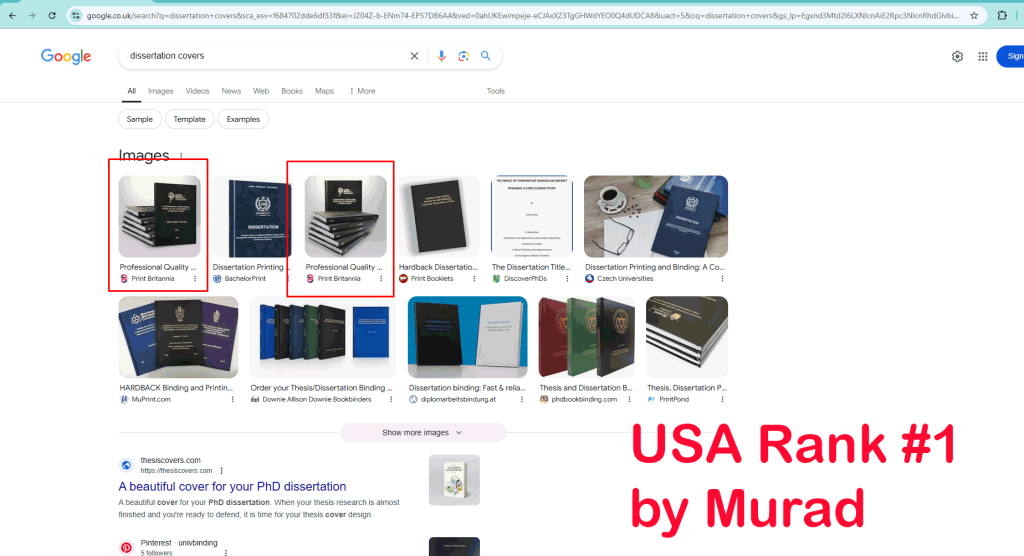SEO optimization is essential for any website looking to improve its visibility online. It’s all about making changes to your website so that search engines, like Google, can find and rank your content higher. When your website ranks better, you get more visitors, which can lead to more sales or engagement.
In today’s digital world, most people rely on search engines to find information. If your website is not showing up on the first page, chances are, potential visitors won’t find you. That’s where search engine rankings come into play. These rankings decide how visible your site is in search results.
On-page SEO plays a huge role in improving your website’s search engine rankings. On-page SEO refers to the changes you make on your website itself to help it rank better. This includes things like using the right keywords, creating high-quality content, and optimizing page speed. By focusing on on-page SEO, you ensure that search engines understand and value your content.
When you start to optimize your website, remember that SEO is an ongoing process. It’s not something you can do once and forget. Keep updating your content and testing different strategies to see what works best. The more effort you put into SEO optimization, the better your chances of moving up in search results.
Understanding SEO Optimization
SEO optimization is the process of making changes to your website so that search engines can easily find and rank it higher in search results. SEO stands for Search Engine Optimization, which is a digital marketing strategy focused on increasing a website’s visibility and driving organic traffic. When done right, SEO can help your site rank higher on search engines like Google, leading to more visitors and potential customers.
Why SEO Optimization is Important for Search Engine Rankings
SEO optimization plays a critical role in improving your website’s search engine rankings. When you optimize your site, search engines better understand what your pages are about and how valuable they are. This, in turn, helps your content appear higher in search results, making it easier for people to find you. Without proper SEO, even the best content can go unnoticed.
Higher rankings often lead to more traffic, higher conversion rates, and ultimately more business opportunities. By investing in SEO optimization, you increase your chances of standing out in a competitive digital space.
Types of SEO
- On-Page SEO: On-page SEO refers to all the changes you make directly on your website to improve its rankings. This includes optimizing things like title tags, meta descriptions, headers, and images. Using relevant keywords throughout your content also falls under on-page SEO. This is the most direct way to tell search engines what your website is about.
- Off-Page SEO: Off-page SEO involves actions taken outside of your website that impact its rankings. This includes building backlinks from other trustworthy websites, social media sharing, and influencer marketing. Off-page SEO signals to search engines that your website is credible and valuable, improving its authority.
- Technical SEO: Technical SEO focuses on the backend of your website. This includes things like improving page load speed, ensuring your site is mobile-friendly, and fixing broken links. Technical SEO ensures that search engines can crawl and index your website effectively, which is essential for ranking well.
Proven Strategies for Boosting Search Engine Rankings

When it comes to improving your search engine rankings, there are several key strategies that can make a significant difference. Below are some proven methods to help boost your SEO and attract more traffic.
Keyword Research: Finding the Right Keywords
Keyword research is one of the most important steps in boosting your search engine rankings. To start, think about the terms and phrases people might type into Google to find your website. Use tools like Google Keyword Planner or SEMrush to discover the best keywords for your industry.
Once you’ve identified the right keywords, it’s essential to integrate them naturally into your content. This includes placing keywords in important spots such as your title, headings, and throughout your text. However, avoid keyword stuffing—use them where they make sense and ensure the content remains readable and valuable.
Content Quality: Creating Valuable Content
The quality of your content is another key factor in ranking well on search engines. High-quality content is informative, engaging, and relevant to your target audience. It’s important to focus on answering your audience’s questions and providing solutions to their problems.
Search engines reward websites that provide value to users. Therefore, aim to create long-form content that covers topics in-depth. This will not only improve your rankings but also keep visitors on your site longer, which is a positive signal to search engines.
Mobile Optimization: Ensuring a Mobile-Friendly Website

With the rise of smartphones, mobile optimization has become a crucial ranking factor. A mobile-friendly website improves the user experience for those browsing on phones and tablets, leading to longer visits and a lower bounce rate.
Search engines, particularly Google, prioritize mobile-friendly sites in their rankings. To make your site mobile-friendly, use responsive design, which adjusts your site’s layout based on the screen size. Additionally, test your site on various devices to ensure it loads properly.
Page Speed: The Importance of Fast-Loading Pages

Page speed is a crucial factor for SEO. Websites that load quickly provide a better user experience, which is why search engines like Google prioritize them. Slow-loading pages can frustrate users and increase your bounce rate, negatively affecting your rankings.
To improve page speed, consider compressing images, using a content delivery network (CDN), and minimizing the use of heavy scripts. Regularly check your website’s load time using tools like Google PageSpeed Insights to identify areas for improvement.
User Experience (UX): How UX Impacts Rankings
User experience (UX) plays a big role in how well your website ranks. Search engines want to deliver the best possible results to their users, which means they favor sites that are easy to navigate and offer a smooth, enjoyable experience.
To improve UX, ensure your website has clear navigation, a clean design, and fast loading times. Also, make sure your content is easy to read with a clear structure and relevant headings. The better the experience for your visitors, the more likely they are to stay on your site, share it, and return in the future, which will help improve your SEO.
Advanced SEO Techniques for Better Results
To stay ahead in the competitive world of SEO, you need to go beyond basic optimization. These advanced techniques can help you boost your rankings and drive more traffic to your website.
Schema Markup: Helping Search Engines Understand Your Content
Schema markup is a form of structured data that helps search engines understand the content on your website more clearly. It’s like giving search engines a detailed roadmap of your content, making it easier for them to index and display in search results.
By adding schema markup to your website, you can improve the visibility of rich snippets, such as product ratings, event details, or FAQs. This not only enhances your website’s appearance in search results but also increases the chances of getting clicks. Using schema markup can improve your chances of ranking higher by making your content stand out.
Content Clusters: Organizing Content for Better SEO
Content clusters are a smart way to organize your content to boost SEO. This approach involves creating a central pillar page that covers a broad topic in-depth and linking it to several related, more specific articles. This structure helps search engines understand the relationship between pages and boosts the authority of your pillar content.
By using content clusters, you make it easier for both search engines and users to find relevant information on your site. The more organized your content is, the better your chances of ranking for a range of related keywords.
Voice Search Optimization: Preparing for the Future of Search
With the rise of virtual assistants like Siri and Alexa, voice search has become increasingly popular. Optimizing your content for voice search is essential to staying relevant in the future of SEO. Voice searches are often more conversational and longer than text searches, so your content needs to match the way people naturally speak.
To optimize for voice search, focus on creating content that answers questions directly and concisely. Use natural language and include long-tail keywords, as voice queries are typically longer and more specific. Ensuring your content is structured in a way that directly addresses common voice search questions will increase your chances of being featured in voice search results.
Backlink Strategy: Building Quality Backlinks for Domain Authority
Backlinks are one of the most powerful ranking factors for SEO. A quality backlink from a reputable site signals to search engines that your content is trustworthy and authoritative. However, not all backlinks are created equal. Focus on building backlinks from high-authority websites in your niche.
To create a strong backlink strategy, you can guest post on reputable blogs, participate in industry forums, or create shareable content like infographics. The more quality backlinks you have, the higher your website’s domain authority, which can significantly improve your rankings.
By incorporating these advanced SEO techniques, you can give your website an edge over competitors and improve your search engine rankings. Keep experimenting with new strategies and track your performance to ensure long-term SEO success.
Measuring Your SEO Success
Once you’ve implemented your SEO strategies, it’s essential to measure their success. Understanding how your website is performing will help you make informed decisions and adjust your strategies for continuous improvement.
Essential SEO Metrics to Track
To measure SEO success, you need to focus on key performance indicators (KPIs) that provide valuable insights into your website’s performance. Some of the most important SEO metrics to track include:
- Organic Traffic: This is the number of visitors who find your website through search engines. A steady increase in organic traffic is a clear sign that your SEO efforts are working.
- Keyword Rankings: Tracking how your targeted keywords rank in search engine results pages (SERPs) will help you determine if your content is optimized effectively.
- Click-Through Rate (CTR): CTR measures the percentage of users who click on your website after seeing it in search results. A high CTR suggests that your title tags and meta descriptions are compelling.
- Bounce Rate: This metric tracks the percentage of visitors who leave your site after viewing only one page. A high bounce rate could indicate that your content isn’t engaging enough or that your site’s user experience needs improvement.
- Conversion Rate: This measures how well your website turns visitors into customers or leads. Tracking conversion rates helps you assess the effectiveness of your content in driving business goals.
Tools to Track Search Engine Rankings and Performance
Several tools can help you track your website’s SEO performance. Some of the most commonly used tools include:
- Google Analytics: This free tool offers in-depth insights into your website’s traffic, including where visitors are coming from, how long they stay, and which pages they visit. Google Analytics also tracks your conversions, allowing you to measure the effectiveness of your SEO efforts.
- SEMrush: This tool is great for tracking keyword rankings, backlinks, and competitor performance. SEMrush provides detailed reports that help you understand where you stand in search engine results and identify areas for improvement.
- Google Search Console: This tool helps you monitor how Google crawls and indexes your site. It provides valuable data on search queries, impressions, and the health of your website in Google’s index.
- Ahrefs: Another powerful SEO tool, Ahrefs tracks keyword rankings, backlinks, and provides detailed reports on your website’s overall SEO health.
How to Adjust Strategies Based on Analytics
Once you’ve tracked your SEO performance using these tools, it’s time to adjust your strategies. Here’s how you can use your analytics to make improvements:
- Identify Underperforming Keywords: If certain keywords aren’t driving traffic, consider tweaking your content to make it more relevant or optimizing it further for those keywords.
- Improve Bounce Rate: If you notice a high bounce rate, review the content and design of your pages. Ensure that your content is engaging and that your website is easy to navigate.
- Optimize Low-CTR Pages: If some pages have a low CTR, consider improving your meta descriptions and title tags to make them more enticing for users.
- Monitor Competitor Performance: Use tools like SEMrush and Ahrefs to track how your competitors are performing. This will help you identify opportunities to target new keywords or create better content.
- Test New SEO Tactics: If certain strategies are working well, try scaling them. Alternatively, test new tactics like voice search optimization or schema markup to see if they provide additional benefits.
Conclusion
Implementing the right SEO strategies is crucial for boosting your website’s visibility and improving your search engine rankings. From optimizing your content with the right keywords to ensuring a seamless user experience, every aspect of SEO plays a role in attracting more visitors and driving business growth. By focusing on proven tactics like keyword research, content quality, mobile optimization, and advanced techniques such as schema markup and backlink building, you can significantly improve your site’s performance.



